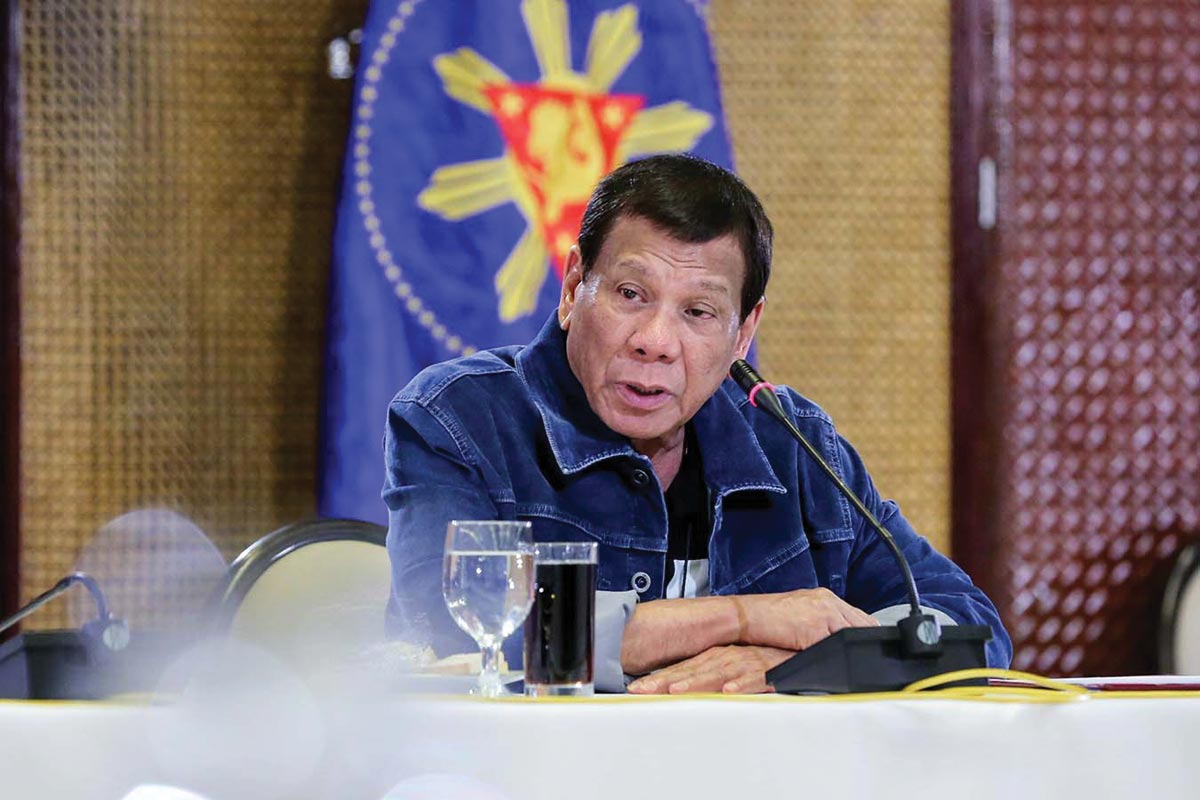
PHILIPPINE President Rodrigo Duterte is under fire after he demanded the United States to “pay” if it wants to keep the Visiting Forces Agreement (VFA) from being terminated.
Addressing the troops at Clark Air Base in Pampanga on Friday, February 12, Duterte said: “I’d like to put on notice if there’s an American agent here. From now on, you want the Visiting Forces Agreement done? You have to pay.”
“It’s a shared responsibility but your share of responsibility does not come free because, after all, when the war breaks out, we all pay,” he added.
Duterte’s statement was criticized by Philippine Vice President Leni Robredo, who noted that the demand sounded like extortion.
“Parang extortion lang. Parang kriminal eh, ‘kung gusto mo nito magbayad ka muna’ (It’s like extortion. It sounded like a criminal saying, ‘If you want this, you have to pay up first’),” she said in her Sunday radio show Biserbisyong Leni.
Robredo also called Duterte’s statement “embarrassing,” adding that the administration should list its reasons for not renewing the VFA without involving money.
“Para sa akin, nakakahiya. Parang nang-eextort tayo. Sa akin, kapag sinabi nating ayaw nating i-renew ‘yung VFA, ilatag natin kung bakit. Ipakita natin bakit ba hindi siya nakakabuti sa atin. Hindi ‘yung pera ang consideration (To me, it’s embarrassing. It’s like we’re extorting money. When we say we don’t want to renew the VFA, let’s lay down the reasons why. Let’s show how it’s disadvantageous to us. Money should not be the consideration),” she said.
“Ang nakabase ito, mutual benefit ng parehong parties to contract. Hindi naman dahil kaibigan kita dahil binigyan mo ako ng pera (This is based on mutual benefits of parties to a contract. We’re not friends just because you gave me money),” she added.
Philippine Senator Panfilo Lacson expressed a similar sentiment, saying that asking Washington to pay may give an impression that the Philippines is a “nation of extortionists.”
“Just to clarify, please be informed that we are not a nation of extortionists; at lalong hindi kami ‘mukhang pera’. Err… hindi lahat (And we are definitely not money-hungry. Err… not all of us),” he said in a now-deleted tweet.
The senator explained that he took down the tweet after thinking that Duterte’s intention was “to get a fair shake of the agreement.”
“I decided to take it down after giving it a thought that the president’s intention was to get a fair shake of the agreement, only he could have said it in a more diplomatic way. On crucial issues such as this, there should be no room for misinterpretation or misunderstanding moving forward,” he said in a statement.
Lacson, who heads the Senate Committee on National Defense, also urged Duterte to take a diplomatic and statesmanlike approach in dealing with VFA negotiations.
“The president may have used strong words to send his message across to the U.S. But certainly, there is a more civil and statesmanlike manner to ask for compensation from a longtime ally using the usual diplomatic channels and still get the same desired results,” he noted.
In a separate tweet, he reiterated: “The diplomatic channels should be a better route to accomplish the same desired results. At least give the other party an elbow room to save face instead of looking bullied and stripped of dignity.”
For national interest
Malacañang, for its part, came to Duterte’s defense, saying his demand is in line with the Philippines’ national interest and not to extort money from the U.S.
“Sa mga nagsasabing extortion, hindi po ‘yan extortion. ‘Yan po ay isang pagtaguyod ng pang-nasyonal na interes ng mga Pilipino at dahil marami po tayong gastusin lalung-lalo na sa COVID-19 (To those calling it extortion, it’s not extortion. That’s in line with the national interest of Filipinos because we are spending a lot especially for COVID-19),” Presidential Spokesperson Harry Roque said Monday, February 15.
According to him, the payment from the U.S. could be used as additional funding for the country’s Universal Health Care (UHC) program.
“Bakit hindi tayo sumingil ng sa ganun yung perang makukuha natin magagamit natin para sa COVID response natin, para sa libreng pakain ng ating mga estudyante, para po sa Universal Health Care, para sa libreng patubig. Lahat po ‘yan kinakailangan ng pondo (Why don’t we seek compensation so that the money can be used for our pandemic response, free meals for our students, for the Universal Health Care, for free water services. All those need funding),” said Roque.
“Huwag naman natin ipagkait sa ating mga kababayan ang karagdagang pondo ngayong pwede naman talaga pagbayarin ang mga Amerikano para sa paggamit ng ating teritoryo (Let’s not deny our citizens additional funds since it’s actually possible to ask America to pay for using our territory),” he added.
Roque stressed that the VFA termination will proceed if the U.S. refuses to pay the Philippines.
“I think the President has been clear, he wants compensation. If the Americans don’t agree, then there is also the previous declaration of the Filipino President that he will terminate the VFA,” he said.
The VFA, which came into force in 1999, covers the conduct of U.S. soldiers in the Philippines.
Among the provisions of the deal include relaxed visa and passport policies for U.S. troops, and the rights of the U.S. government to retain its jurisdiction over its military personnel when they commit crimes in the Philippines.
In February 2020, the Philippines sent the U.S. a notice terminating the VFA reportedly after the U.S. canceled Senator Ronald “Bato” Dela Rosa’s visa.
The termination was later suspended in June “in light of political and other developments in the region,” and the suspension was extended in November for another six months to enable the Philippines and the U.S. to find a more enhanced, mutually beneficial, mutually agreeable, and more effective and lasting arrangement on how to move forward in their mutual defense.







